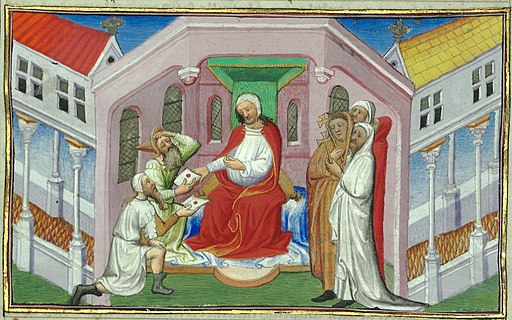One of the most persistent myths of the Middle Ages was that of Prester John, a mythical Christian king whose supposed domain was located beyond the eastern Muslim regions. Probably the most vivid portion of the myth is a letter received by the Byzantine emperor Manuel I Komnenos in 1165 claiming to be from the monarch. The letter (ostensibly written from one king to another, but with an arrogant, bragging tone that glorifies Prester John’s position relative to that of Byzantium) details a kingdom flowing with milk and honey, populated by fantastical animals such as centaurs and fauns, and featuring such wonders as Mount Olympus and the Fountain of Youth.
Some writers, most notably Marco Polo, identified Prester John with the Mongols, and later versions of the story would move his kingdom to Ethiopia. Below is a 15th century painting depicting Ong Khan, a rival to Genghis Khan, as the legendary king Prester John.
Related Links:
Prester John is profiled in chapter three of S. Baring-Gould’s Curious Myths of the Middle Ages from 1867.
Prester John and Europe’s Discovery of East Asia from East Asian History, June, 1996.
This YouTube video by a medieval studies grad student nicely illustrates the legend of Prester John with action figures. I have a serious amount of admiration for that kind of thing.
Podcast: Play in new window | Download
Subscribe: RSS
